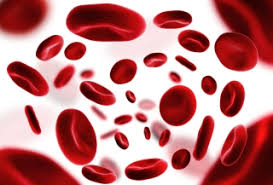 As any physician will tell you, the MCAT is perhaps the most important step to placement in a medical school or graduate-level health care education. In terms of importance, it’s like the Bar Exam, considering how scrutinized the MCAT is and how much medical school courses focus on passing the boards.
As any physician will tell you, the MCAT is perhaps the most important step to placement in a medical school or graduate-level health care education. In terms of importance, it’s like the Bar Exam, considering how scrutinized the MCAT is and how much medical school courses focus on passing the boards.
MEdical School News and MCAT Strategy
Stay current with the latest med school admissions news and proven MCAT strategies.
Posts about MCAT prep strategies:
Acing General Chemistry on the MCAT
 Reviewing and relearning a multitude of topics and subjects for the MCAT is no easy feat for most students. Many find general chemistry especially burdensome since it is usually taken freshman year and well forgotten by the time MCAT preparation comes around. This article explores various tips useful for brushing up on your chemistry knowledge and studying for it as efficiently as possible.
Reviewing and relearning a multitude of topics and subjects for the MCAT is no easy feat for most students. Many find general chemistry especially burdensome since it is usually taken freshman year and well forgotten by the time MCAT preparation comes around. This article explores various tips useful for brushing up on your chemistry knowledge and studying for it as efficiently as possible.
It's in Your Blood: Understanding Hematology on the MCAT
 In our last post on the Medical College Admissions Test (MCAT), we discussed the integration of endocrinology and physics in the cardiovascular system. This month we will dive in further and discuss the hematologic system that drives the cardiovascular system and how to apply concepts from genetics and chemistry.
In our last post on the Medical College Admissions Test (MCAT), we discussed the integration of endocrinology and physics in the cardiovascular system. This month we will dive in further and discuss the hematologic system that drives the cardiovascular system and how to apply concepts from genetics and chemistry.
Don't Go Breaking My Heart: Cardiology on the MCAT
 Cardiology is typically a favorite topic for most students. The heart is one of the most revered organs and the majority of students are taught baseline information about the heart during their primary school education. The American Association of Medical Colleges (AAMC) also loves the cardiovascular system and often tests students’ knowledge of it in the Medical College Admissions Test (MCAT). Additionally, this cardio knowledge will serve you well as a future medical student since cardiology tends to be one of the most difficult courses. This article will discuss the cardiology content on the MCAT, interdisciplinary connections for this content, as well as some tricks and tips on how to maximize cardiology questions in the Biological and Biochemical Foundations of Living Systems section on the MCAT.
Cardiology is typically a favorite topic for most students. The heart is one of the most revered organs and the majority of students are taught baseline information about the heart during their primary school education. The American Association of Medical Colleges (AAMC) also loves the cardiovascular system and often tests students’ knowledge of it in the Medical College Admissions Test (MCAT). Additionally, this cardio knowledge will serve you well as a future medical student since cardiology tends to be one of the most difficult courses. This article will discuss the cardiology content on the MCAT, interdisciplinary connections for this content, as well as some tricks and tips on how to maximize cardiology questions in the Biological and Biochemical Foundations of Living Systems section on the MCAT.
What Exactly is a Nephron?: A Guide to Physiology on the MCAT
E=MC2: Why Equations are Relative[ly] Important for Scoring High on the MCAT
 The Chemical and Physical Foundations of Biological Systems section of the Medical College Admissions Test (MCAT) is conceptually one of the most difficult sections of the exam. With 59 questions in a 95-minute span, it integrates and tests dense subjects such as biochemistry, biology, general chemistry, organic chemistry, and physics. This section not only requires a conceptual understanding of these topics, but also tests the student’s ability to interpret, analyze, and calculate the answer to complex problems. Because of this, it is vital that students know many equations cold prior to entering the test. Here we will provide you with recommendations for creating equation sheets and methods for memorizing them.
The Chemical and Physical Foundations of Biological Systems section of the Medical College Admissions Test (MCAT) is conceptually one of the most difficult sections of the exam. With 59 questions in a 95-minute span, it integrates and tests dense subjects such as biochemistry, biology, general chemistry, organic chemistry, and physics. This section not only requires a conceptual understanding of these topics, but also tests the student’s ability to interpret, analyze, and calculate the answer to complex problems. Because of this, it is vital that students know many equations cold prior to entering the test. Here we will provide you with recommendations for creating equation sheets and methods for memorizing them.
